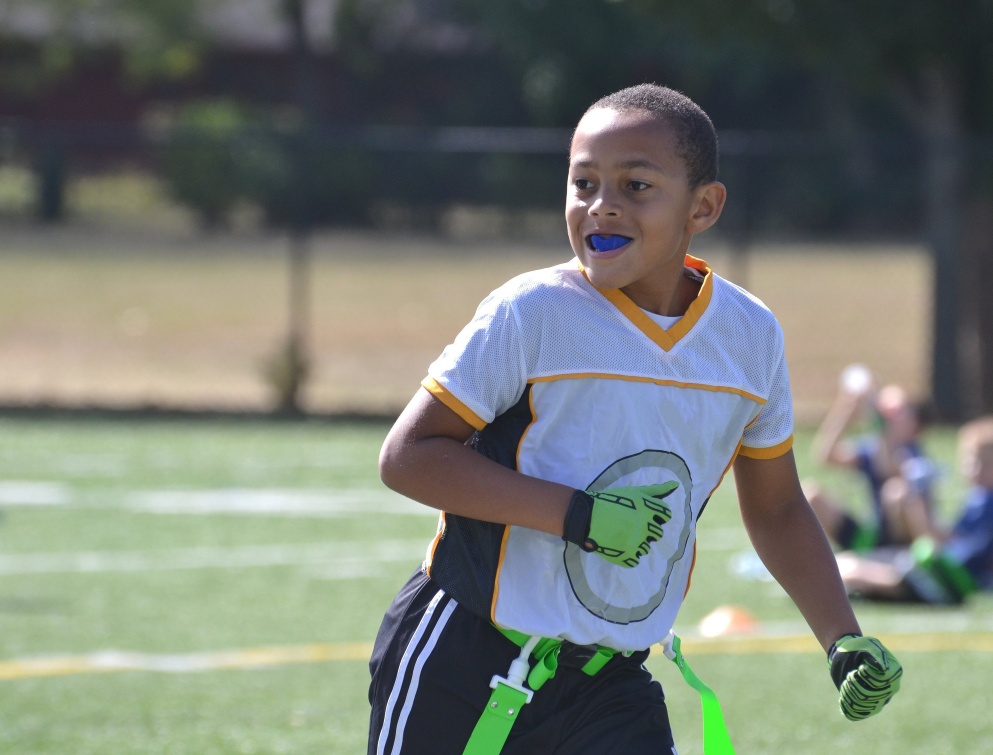Sports are an excellent way for kids as well as adults to stay active, boost their overall health, learn new skills, and build lifelong friendships. Yet like anything else, sports carry certain risks. It is impossible to prevent all injuries, but protective gear is a key component in keeping athletes safe. A mouth guard can help to protect against damage to the teeth and oral structures, but not all mouth guards are the same. Here is what you should know about sports mouth guards.
Sports That Require Mouth Guards
You might already be aware that mouth guards are required for certain sports that are considered “contact sports,” including but not limited to:
- Football
- Rugby
- Boxing
- Hockey
- Lacrosse
What you may not know is that while mouth guards are generally not required for “non-contact sports,” the American Dental Association
(ADA) continues to expand its recommendations on mouth guards for sports where collisions or impacts can be reasonably expected, such as:
- Basketball
- Soccer
- Racquetball
- Skateboarding
- Gymnastics
- Types of Mouth Guards
There are three basic types of mouth guards. Regardless of the type you choose, it is important to ensure that it fits securely but comfortably, and does not interfere with speaking or breathing.
Stock Mouth Guards: As the name implies, a stock mouth guard is ready to wear straight off the shelf. These mouth guards are the least expensive, but they are not fitted to the wearer’s mouth. Many people find them uncomfortable and poorly fitted.
Boil and Bite Mouth Guards: You can find boil and bite mouth guards at drugstores and big box stores. This middle of the road option requires you to soften the mouth guard in boiling water, let it cool until tolerable, and then have the athlete bite down into it. This forms the mouth guard to the mouth, creating a fit that is reasonably secure and comfortable.
Custom Mouth Guards: Custom mouth guards are specially designed by a dentist to exactly fit the athlete’s unique oral anatomy. They are especially recommended for athletes with braces or unusual oral features, but are considered the best fitted and most comfortable solution for all athletes. If a boil and bite mouth guard fits well and is comfortable, it may not be necessary to invest in a custom mouth guard.
Caring for a Mouth Guard
Proper care is essential for any mouth guard. Rinse the mouth guard thoroughly before and after each use, and wash it regularly with warm, soapy water. Carefully check it for any signs of wear or damage after each washing. Children’s mouths grow and change, so it essential to check frequently for a proper fit. Your dentist can check the fit if you are unsure what to look for.
Dental trauma is a common but frequently avoidable sports injury. You can dramatically lower the risks by choosing a properly fitted mouth guard and taking excellent care of it. Kids should be taught to take care of their mouth guards along with the rest of their sports equipment, and to tell a parent or coach immediately if they notice any problems.
Ready to Make Your Appointment?
If you’re ready to get started with a progressive yet conservative approach to your dental health, contact Creekview Dental today at 651-738-8204 to schedule your first appointment.


